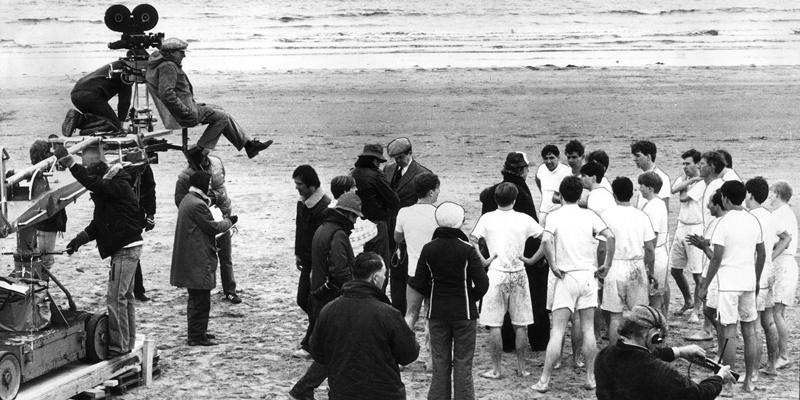It’s one of the most unforgettable opening movie sequences of all time. The athletes running in slow motion down the West Sands at St Andrews to Vangelis’s instantly recognisable Chariots of Fire theme tune.
But Lord Puttnam, the producer of the Oscar-winning movie Chariots of Fire, has told The Courier the opening titles have always been a source of ”great embarrassment” to him.
As he prepared to give a UNICEF lecture at St Andrews University on Tuesday evening, Lord Puttnam revealed he always cringes when ‘Bournemouth, 1922’ appears on screen to describe the instantly recognisable St Andrews backdrop.
He said: ”It was a totally pragmatic decision to use the beach at St Andrews because it meant we were in the same kind of area to make the movie. But the stupid thing was it should have said ”St Andrews, 1922” and they should have left the hotel as it was not put up some silly signs on it pretending it was the south of England. We could have saved ourselves some money and saved ourselves some embarrassment as well.”
Lord Puttnam revealed that Chariots of Fire is to be given a cinematic re-release to coincide with this summer’s London Olympics. While the film is 31 years old and the fact-based story about two athletes Scotsman Eric Liddell, a devout Christian, and Harold Abrahams, an English Jew date back to the early 20th century, he believes the message of the film is now more relevant than ever.
Lord Puttnam said: ”My contribution to the whole thing was finding the story and commissioning the script. The Liddle v Abrahams comparison was the spine of the film. But here was a guy, Liddle, who was the best runner in the country who wouldn’t run on a Sunday. I think it’s really interesting that Liddle showed that you can stick to your principles and win, whereas the culture we’ve allowed ourselves to drift into in modern society sort of suggests that either you stick to your principles OR you win.”
Lord Puttnam, a UNICEF UK ambassador, was invited to St Andrews by the St Andrews University UNICEF Society to give a lecture on the effects of war and violence and to warn that the world’s children are and will increasingly suffer most as a result of climate change.
He said: ”The world’s in a mess and my own generation must bear responsibility for that. We’ve let the younger generations down badly. We’ve used your resources, used your money and used your air. And it’s going to take the smartest generation in history to bail the world out.
“That’s the message I am sending out here in St Andrews today. Otherwise, I don’t think the world will be here by 2100. I truly believe that. I was talking to a scientist who said ‘we have become like gods’. Well, we’d better start getting good at it!”A fuller interview with Lord Puttnam will appear in The Courier at a later date
